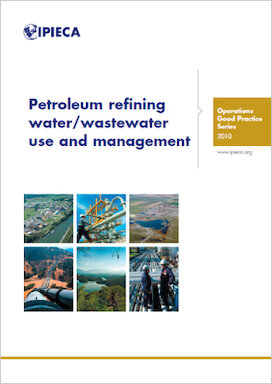This manual describes typical 'best practices' and strategies used in petroleum refineries to manage water, including ways to reduce water usage. Improved water management in a petroleum refinery can potentially reduce the volume and cost of raw water used in refinery operations. Furthermore, improved water management may result in reductions in wastewater flow or contaminant load or both. Lower flow and contaminant load may result in lower wastewater treatment operating and maintenance costs. Optimized water management may also reduce the mass of contaminants in the treated effluent, thus improving the quality of a wastewater discharge and ultimately the environmental impact of a refinery's discharge.
Petroleum refining water / wastewater use and management

Related resources
- 16 December 2024
This guidance clarifies currently used terminology in the water stewardship space and presents users with a streamlined water stewardship action scheme that synthesises water frameworks and disclosure standards for the energy sector.
- 17 July 2024
The increasing global movement of people and goods elevates the risk of the introduction, spread, and establishment of invasive alien species (IAS), impacting biodiversity and businesses. This document provides guidance for prevention and management.
- 13 March 2023
This Ipieca-IOGP guidance is designed to help HSE/SD professionals to develop biodiversity action plans (BAPs) for their activities and projects.
- 28 November 2022
The Ipieca-OGCI Natural climate solutions: high carbon stock ecosystems management guidance supports the Paris Agreement goals by setting out the key principles to help energy companies conserve, enhance and restore the high carbon stock ecosystems where they operate.



